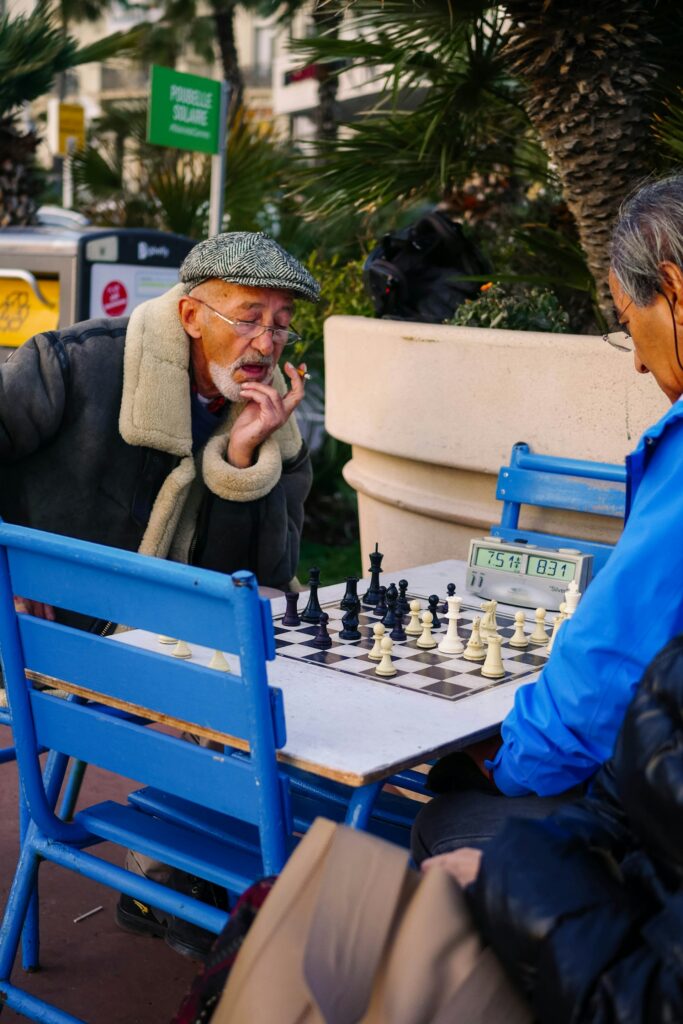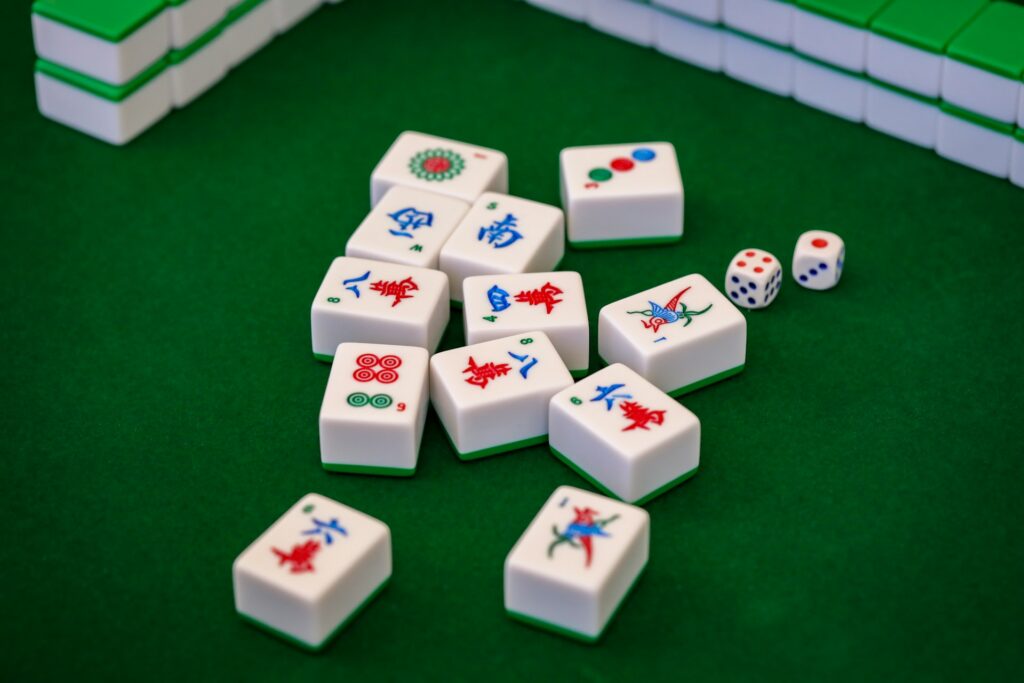Do you ever leave the house and immediately backtrack, worried that you’ve left the iron on? Is misplacing your keys a regular occurrence, only to once again find them in the fridge? Though of course we can’t say with any medical certainty, the likelihood is that you’ve simply suffered from a brief lapse in memory. We all get them; for majority of cases and in the majority of times, this is simply an incident of mild forgetfulness.
If you love to play games at home and entertain yourself, but also want to keep your brain sharp while doing so, then read on; here are 7 fun games that could also strengthen memory.
Crossword Puzzles
‘‘One words. Five letters. I’ve got the second and last letters, D and L. The clue is ‘perfectly suited’…’’
Yep, crossword puzzles come in all sorts of levels of difficulty, sizes and shapes, from quick to challenging, and clear to cryptic. What they all have in common is their ability to keep the mind fresh and focused, by extending our logistical and literacy skills.
But what about their impact on memory? Well, the Fisher Center for Alzheimer’s Research Foundation encourages regular crossword puzzles as a means of protecting the brain, citing a study done by the University of California which found that ‘’the more often someone engaged in mentally stimulating activities, the less buildup of beta-amyloid they were likely to have in the brain’’. That beta-amyloid is a toxic protein which can build up in the brain and cause issues with memory. Fascinating stuff.

Sudoku
Those sums you’ve seen your ma doing with the morning newspaper across the kitchen table; nope, she wasn’t totting up the weekly food shop or how much rent you owe her. Rather, she’s been playing Sudoku. No wonder she doesn’t need a pen and paper to tot up that rent!
Yep, this deceptively simple Japanese, grid-based numbers game has been said to help brain function, with a study in the Journal of Geriatric Psychiatry finding that increased playing of sudoku (and also crosswords) led to better brain function in the over 50s. What’s more, Everyday Health have recently reported that ‘‘a brain game like sudoku…can help delay dementia and Alzheimer’s’’. Wow!
Chess
Whether you prefer to use the Sicilian Defence Dragon’s Variation, are quick to castle or lean heavily on the Queen’s Gambit for your opening salvo, playing chess regularly has also been said to be great for keeping players sharp, focused and potentially protecting their memories.
If this obscure terminology has left you befuddled, it might be time to sharpen up those chess skills. For many, chess is the king (or should we say, queen) of brain training board games, and is ideal for giving your brain a thorough workout.
Indeed, studies have consistently posited that routinely playing the world’s most famous board game improves memory, problem solving and even reading skills (in children), develops planning and foresight, and most comprehensively, has been said to significantly increase a player’s IQ after four months of playing.
In terms of memory, an Iranian study published in 2015 have suggested that ‘’auditory memory function in expert chess players was significantly better compared to non-chess players. It seems that increased auditory memory function is related to strengthening cognitive performances due to playing chess for a long time’’. Though gaining such benefits from chess playing might take years of practice, there’s no better time to start than now, don’t you think?


Bingo
So, you know your garden gate from your Christmas cake, and you’re up to tricks as you clickety-click? Incredibly, the recollection of all those amusing terms, as well as the social aspect of the popular game, can actually boost brainpower and memory in bingo players, with the Telegraph reporting that scientists had found that ‘’bingo boosts memory and IQ’’. Indeed, the BBC concurred, suggesting that bingo had the power to make older players more agile.
Should you be looking to play from home rather than rubbing shoulders with local enthusiasts at the local hall, then the best online bingo games out there are easy to sign up for, a whole lot of fun in a convenient setting, and possess the power to give your brain a good workout, too. Clickety-click, indeed.
Scrabble
Quickfire question; can you remember which Scrabble piece carries the greatest numerical weight? Yep, of course you knew it was Q or Z. We’re sorry to have present such an easy quiz. Hey, ‘quiz’! That’s 22 points to us.
But we didn’t have to explain that right? Perhaps you didn’t know, however, that ‘Caziques’ is the highest scoring Scrabble word of all time, netting an incredible 392 points.
Anyway, enough of the showboating; how might Scrabble help our memories? Well, some experts have suggested that by playing the famous word game, we engage in what’s known as ‘retrieval practice’, which links visual cues (like the letter tiles) to our memory bank of numbers, lists, facts and words. Since this practice can help memory by linking cues and their associated memories, it pushes us to foster association. In turn, it can help strengthen our memory.

Mahjong
If you’re not familiar with Mahjong, firstly, a brief explanation. Mahjong is an ancient Chinese game played on tiles, across parks and in special rooms across Asia, and is a little like rummy, in that sequences of pictures are formed.
It’s not surprising, then, that the game promotes memory, through a recollection of pictures and patterns, not to mention the sometimes complex rules! A study carried out by the University of Georgia and Huazhong University of Science and Technology in China found that regularly taking out the Mahjong tiles led to stronger overall mental health. Whilst the study doesn’t mention memory specifically, the game is beloved of the continent’s elderly, and its positive impacts on the mind, as well as the social aspect, can only be a good thing.

Jigsaw Puzzles
Remember those rainy afternoons spent piecing together a jigsaw puzzle? It turns out that this classic pastime is more than just a way to pass the time. Jigsaw puzzles are excellent for enhancing memory and cognitive function. When you work on a jigsaw puzzle, you need to remember the shapes, colours, and patterns of pieces you’ve already examined, which exercises your short-term memory.
A study published in the journal Frontiers in Aging Neuroscience found that engaging in jigsaw puzzles can improve visuospatial cognitive abilities and short-term memory. The act of piecing together a puzzle requires concentration and patience, which can also help improve focus and attention span. So, next time you’re looking for a relaxing yet mentally stimulating activity, consider pulling out a jigsaw puzzle.
*Should you be concerned about your memory, do consult with your GP. These games are merely meant as a bit of fun and to keep that sense of ‘sharpness’, rather than offering any medical help or treatment*





